 I loved reading this blogpost earlier in the week on Preparing an EU Funding Presentation. It reminded me of so many which I have sat through, and of my aim to never make people at BU have to do the same internally!
I loved reading this blogpost earlier in the week on Preparing an EU Funding Presentation. It reminded me of so many which I have sat through, and of my aim to never make people at BU have to do the same internally!
Latest research and knowledge exchange news at Bournemouth University
Welcome to the EU section of the blog! Emily Cieciura (BU’s Research Facilitator – EU and International), Jo Garrad (Funding Development Manager) and Dianne Goodman (Funding Development Co-ordinator) together try to take the pain out of finding and applying for EU funding by horizon scanning many sources and placing the most important information on this page.
We blog as often as possible on everything from calls for proposals and partner searches, to networking event opportunities, all the latest on Horizon 2020 and international funding. We also use the blog to disseminate information on EUADS (BU’s EU academic training initiative), how to write brilliant proposals, how to find partners and other top tips!
 I loved reading this blogpost earlier in the week on Preparing an EU Funding Presentation. It reminded me of so many which I have sat through, and of my aim to never make people at BU have to do the same internally!
I loved reading this blogpost earlier in the week on Preparing an EU Funding Presentation. It reminded me of so many which I have sat through, and of my aim to never make people at BU have to do the same internally!
 The European Commission has announced that the call for proposals for the year 2012 has been launched an EC Film Industry Call for projects taking place between the 1 February 2013 and 30 June 2014, in the fields of training, market access, distribution and circulation of audiovisual works. The European Union adopted a new MEDIA Mundus programme, a broad international cooperation programme for the audiovisual industry to strengthen cultural and commercial relations between Europe’s film industry and film-makers of third countries. The EU will provide €4,426 million of funding for projects submitted by audiovisual professionals from Europe and from third countries. The closing date for applications is the 28 September 2012.
The European Commission has announced that the call for proposals for the year 2012 has been launched an EC Film Industry Call for projects taking place between the 1 February 2013 and 30 June 2014, in the fields of training, market access, distribution and circulation of audiovisual works. The European Union adopted a new MEDIA Mundus programme, a broad international cooperation programme for the audiovisual industry to strengthen cultural and commercial relations between Europe’s film industry and film-makers of third countries. The EU will provide €4,426 million of funding for projects submitted by audiovisual professionals from Europe and from third countries. The closing date for applications is the 28 September 2012.
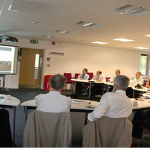 Sustainable Design Research Centre (Zulfiqar Khan and Mark Hadfield) reported the success of BU EUNF application for funding on March 19th 2012 through the BU Blog. The award played a significant role to achieve the objectives of the original plan as
Sustainable Design Research Centre (Zulfiqar Khan and Mark Hadfield) reported the success of BU EUNF application for funding on March 19th 2012 through the BU Blog. The award played a significant role to achieve the objectives of the original plan as
Monday 2nd July 2012 was scheduled for the BU-Tank Museum EU Conference here at BU. A successful conference was held with key representatives from the following organisations
It was planned to apply for EU networking/consortium funds to take off the proposal development process. Various actions were identified and linked with the expertise/resources. Following from the discussions it was agreed to define a roadmap for the newly formed consortium in terms of sustainable methodology of conserving historic military vehicles in the museum environments across EU.
The following relevant EU funding strands were identified as potential for targeting.
COST (European Cooperation in Science and Technology) open call has been identified to be targeted for further research collaborative activities.
A proposal is currently being developed to submit an application to this call. A meeting with the Tank Museum Director Richard Smith, Professor Mark Hadfield and Dr Zulfiqar Khan has been scheduled on the 31st of July 2012 to start developing proposal for the above mentioned open call due by the end of September 2012.
This was a significant opportunity in terms of initiating new links across EU museums and key stakeholders. This also provided an influential platform for disseminating and promoting the existing research undertaken in collaboration with The Tank Museum. The newly formed collaborative links with the DSTL (MOD) has already yielded into a DEC-DSTL match funded PhD studentship which is a significant milestone Further links have already been followed to strengthen the newly developed group, which will be important in future funding applications and securing external income.
 New year’s day 2013 is an important day for those of you undertaking EU research as this is when it officially becomes simpler to get your money off the commission. The new legislation to be introduced on January 1st will cut red tape, enabling increased transparency and higher accountability of all involved in dealing with EU finances. It moves the protection of EU financial interests to a higher level.
New year’s day 2013 is an important day for those of you undertaking EU research as this is when it officially becomes simpler to get your money off the commission. The new legislation to be introduced on January 1st will cut red tape, enabling increased transparency and higher accountability of all involved in dealing with EU finances. It moves the protection of EU financial interests to a higher level.
The complaints of organizations such as BU have at last been listened to and the new rules focus on simpler and faster access to funds while strengthening accountability in the manner in which taxpayers’ money is spent. New rules include the scrapping of the obligation to open separate bank accounts, shortening the time for payments to beneficiaries (30, 60 or 90 days depending on the complexity of the deliverables), more use of lump sums and flat rates for smaller amounts, no need to fill in the same details every time one applies for EU funds, on-line applications and other measures in order to focus more on results and less on paper work…
For any of you interested in learning more about the new rules and regulations, check out the EC Financial Regulation site.
 With the Calls for Proposals released and the deadline next month, this is your one and only chance to make use of our expert internal peer review of your Marie Curie submission. I am thrilled that two of our excellent recipients of this funding – Rudy Gozlan and Rob Britton – have agreed to be the reviewers for our specialist RPRS internal peer review panel for the Marie Curie submissions to help you. Rudy and Rob will review yoru draft and give you feedback on any issues they can foresee given their experience and highlight any areas which should be addressed to maximise your chance of success before you submit in August. You will receive your feedback on July 20th, which gives you plenty of time to tweak your proposal and get it submitted on time. There are no forms to fill in; just save a copy of your application as a PDF/ Word document and email over.
With the Calls for Proposals released and the deadline next month, this is your one and only chance to make use of our expert internal peer review of your Marie Curie submission. I am thrilled that two of our excellent recipients of this funding – Rudy Gozlan and Rob Britton – have agreed to be the reviewers for our specialist RPRS internal peer review panel for the Marie Curie submissions to help you. Rudy and Rob will review yoru draft and give you feedback on any issues they can foresee given their experience and highlight any areas which should be addressed to maximise your chance of success before you submit in August. You will receive your feedback on July 20th, which gives you plenty of time to tweak your proposal and get it submitted on time. There are no forms to fill in; just save a copy of your application as a PDF/ Word document and email over.
We are very lucky to have such fantastic expertise within our institution so please do take full advantage of it ![]()
 It’s the moment we have been waiting for all year – the final FP7 Work Programmes ever are released today!
It’s the moment we have been waiting for all year – the final FP7 Work Programmes ever are released today!
You should be well aware of what is coming up in these now, given the previous orientation papers and news I have kept you up to date with but it is useful to have the solid final documents here at last!
I will be working over the next week to summarise the hideous Work Programmes for you in to nice searchable and easy to use formats, which will enable you to see if there are any calls you are interested in without having to trawl through the documents. I will keep you posted as to when these are available. Links to the actual Work Programmes in the meantime are:
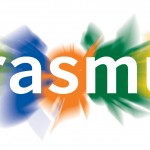 BU had had a successful track record with Erasmus, Erasmus Mundus, Leonardo da Vinci and other Lifelong Learning programme initiatives so I am pleased to have an update on these in Horizon 2020. This year the Erasmus scheme is 25 years old it’s good to see that education and youth policies remain high on the EU agenda and features heavily in documents such as Europe 2020 and Education and Youth 2020 strategy.
BU had had a successful track record with Erasmus, Erasmus Mundus, Leonardo da Vinci and other Lifelong Learning programme initiatives so I am pleased to have an update on these in Horizon 2020. This year the Erasmus scheme is 25 years old it’s good to see that education and youth policies remain high on the EU agenda and features heavily in documents such as Europe 2020 and Education and Youth 2020 strategy.
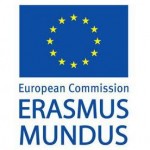 In order to avoid duplication and increase simplification, for Horizon 2020 the lifelong learning programmes, Erasmus, Grundtvig, Leonardo and Cornelius, Youth in Action and other smaller programmes will be compressed into 3 Erasmus for All initiatives with a whopping €19billion budget. The current 7 different co-financing rules will all be harmonised into one set of rules for all schemes within this programme. Also under the current programmes we need to have an Erasmus University Charter which will still be needed. Once you have it you never need to apply again, which is good for BU as we already have it. This Charter covers different aspects of mobility for staff, students and placements and the EC are currently debating how best they can amalgamate these without making places like BU having to apply from scratch again. The three proposed Erasmus for All initiatives are:
In order to avoid duplication and increase simplification, for Horizon 2020 the lifelong learning programmes, Erasmus, Grundtvig, Leonardo and Cornelius, Youth in Action and other smaller programmes will be compressed into 3 Erasmus for All initiatives with a whopping €19billion budget. The current 7 different co-financing rules will all be harmonised into one set of rules for all schemes within this programme. Also under the current programmes we need to have an Erasmus University Charter which will still be needed. Once you have it you never need to apply again, which is good for BU as we already have it. This Charter covers different aspects of mobility for staff, students and placements and the EC are currently debating how best they can amalgamate these without making places like BU having to apply from scratch again. The three proposed Erasmus for All initiatives are:
1. Learning Mobility: This will focus on individuals and will have 63% of the budget. It will target staff (youth workers, school workers, teachers, trainers) and Higher Education students and Masters students. It will also cover volunteering and youth exchanges for young people and mobility outside of the EU. So what does this mean for us? Well, more mobility is available as Erasmus has an international focus, not just EU. I will offer high quality joint Masters degrees through consortiums of universities and also will provide us with student loan guarantees to boost mobility.
2. Cooperation Projects: This will have 25% of the budget which will be used to support cooperation in order to achieve innovation and good practice which it will achieve through strategic partnership support between various stakeholders (including education to education and education to businesses). It wants to use funding to explore how we can make graduates more employable – what skills and competencies for graduates need to be employed in certain sectors. It will also support large scale partnerships between higher education institutes and businesses through large ‘knowledge alliances’ (up to €1m) and support third county capacity building. So what does this mean for us? The will be Erasmus Clusters which have intense cooperation between countries which we need to be part of. We need to also get involved with businesses to achieve the knowledge alliance aspects and we can also now target countries outside of the EU to build working relationships with. Finally we could start to use strategic partnerships through this type of funding to establish future Marie Curie fellowships.
3. Policy Support: This funds holds 4% of the budget and will be used for policy reform, particularly this policies mentioned in the introduction. It will support the valorisation and implementation of EU transparency tools, policy dialogue with stakeholders and will cover the entire world and not just the EU. So what does this mean for us? We can get involved with countries sours de of Europe and contribute to policy development.
What about Jean Monnet and sport funding? Don’t worry these will also exist in Erasmus for All. Jean Monnet will remain pretty much exactly how it is supporting institutions who promote European citizenship. As for sport, it was determined by the EC that many aspects of sport research involve the need for learning, such as why racism exists in sport, and so they have included it within the Erasmus for All scheme.
By early 2013 the European Parliament would have reviewed and agreed the final proposals for Erasmus for All and so we will know the final details as how it will look and confirmation of the budgets etc at this point. I will of course keep you updated each time in receive any information.
 I tend not to blog too much about the European Research Council (ERC) grants within FP7 as they are so competitive and not really applicable for the overwhelming majority of researchers throughout the world, bit as I’m giving an update on Horizon 2020 and because the ERC budget is expected to go up massively, it seems important to cover it. The ERC is designed for the crème de la crème of the world’s researchers. This scheme has a budget of €7.5 billion which is used to fund frontier research projects, focusing in excellence and takes a bottom up approach. The scheme is open to researchers from anywhere in the world and they don’t have to have any partners or can have a whole team. There are 4 types of grant under the ERC:
I tend not to blog too much about the European Research Council (ERC) grants within FP7 as they are so competitive and not really applicable for the overwhelming majority of researchers throughout the world, bit as I’m giving an update on Horizon 2020 and because the ERC budget is expected to go up massively, it seems important to cover it. The ERC is designed for the crème de la crème of the world’s researchers. This scheme has a budget of €7.5 billion which is used to fund frontier research projects, focusing in excellence and takes a bottom up approach. The scheme is open to researchers from anywhere in the world and they don’t have to have any partners or can have a whole team. There are 4 types of grant under the ERC:
1. Starting Grants: for researchers 2-7 years post-PhD looking for up to €2m funding for a maximum of 5 years
2. Advanced Grants: for researchers with a ‘significant track record’ of research achievements over a 10 year period looking for up to €3.5m over a maximum of 5 years
3. Synergy Grants: for 2-4 Principal Investigators looking for up to €15m for a maximum of 6 years
4. Proof-of-Concept: for ERC grant holders looking to bridge the gap between research and the earliest stage of marketable innovation, up to €150k
The budgets are high for individual projects and the topic flexible so on paper seems like a great scheme. Indeed more than 2, 600 Principal Investigators based in 480 Host Institutions in 26 countries have received funds under this scheme since 2007. And the UK is in the top 5 in terms of success rates and we are the country where the majority of ERC is hosted; with Cambridge and Oxford as the top 2 host institutions in the whole programme.
However the scheme is super competitive; it has an average 12% success rate. All schemes have reduced in their success rates over the last 2 years. It is also biased towards certain institutions, with 50% of Principal Investigators being based in just 50 institutions. And lastly, it is mostly geared towards the physical sciences, life sciences and engineering as it funds ‘risky’ research and is looking for competitiveness which social sciences and humanities often can’t offer.
So overall, despite the fact that for Horizon 2020 the budget will increase (as will the number of applications) unless you are one of the best researchers in the world (and can prove it), working in a uni popular with the ERC and if you have a truly blue skies research project based in the hard sciences and don’t mind a low success rate then this scheme isn’t for you. If you do match this description then you will be pleased to hear there are no major reshaping plans for the scheme under Horizon 2020, just a recognition that the scientific governance of the scheme needs to be strengthened and links between this and other schemes also strengthened.
 Regular readers of this EU section of the BU research blog will know how pleased I am that so many of you engage in Marie Curie under FP7. The great news is that it is here to stay for Horizon 2020 although it will be known as Marie Skłodowska-Curie Actions. For some unknown reason Marie Curie’s Polish maiden name has been incorporated in to this (possibly due to a previously rather senior Polish Presidency overseeing this!). The other good news is that it is set to get even bigger with an increase of funding by 20% and will incorporate the doctoral fellowships currently offered in the Erasmus Mundus Programme. The bad news is that it is also getting much more competitive. Two years ago the average success rate of Marie Curie was over 30%, now average is 14%. The good news is the UK is the second highest recipient of the funding with the second highest success rate so we are still in a good position.
Regular readers of this EU section of the BU research blog will know how pleased I am that so many of you engage in Marie Curie under FP7. The great news is that it is here to stay for Horizon 2020 although it will be known as Marie Skłodowska-Curie Actions. For some unknown reason Marie Curie’s Polish maiden name has been incorporated in to this (possibly due to a previously rather senior Polish Presidency overseeing this!). The other good news is that it is set to get even bigger with an increase of funding by 20% and will incorporate the doctoral fellowships currently offered in the Erasmus Mundus Programme. The bad news is that it is also getting much more competitive. Two years ago the average success rate of Marie Curie was over 30%, now average is 14%. The good news is the UK is the second highest recipient of the funding with the second highest success rate so we are still in a good position.
For those of you unfamiliar with Marie Curie, they are fellowships to support great researchers from anywhere in the world (and include those in industry) to increase their research experience and expertise. You can read more on what Marie Curie actions exist here and the range of support mechanisms we have for those interested in applying hereIf you know a researcher who would be suitable for a Marie Curie Incoming Fellowship, then do approach them: the UK is the number one destination for the 130 nationality, 60, 000 Marie Curie Fellowship holders, so we are an attractive proposition and if you want to travel to another country, then you can do so with confidence; the UK is the seventh largest participant in this scheme who travel elsewhere in the world. The UK has attracted in the following fellows under the various schemes:
| Intra-European Fellowships | 894 |
| Initial Training Networks | 730 |
| International Incoming Fellowships | 279 |
| Industry-Academia Partnerships | 241 |
| Co-funding of Regional, National and International Programmes | 111 |
| Reintegration Grants | 73 |
| International Outgoing Fellowships | 73 |
| Career Integration Grants | 42 |
| International Reintegration Grants | 37 |
| European Reintegration Grants | 18 |
Under Horizon 2020, Marie Curie actions will have a proposed €5.75 billion and all current schemes within the programme will remain pretty much the same, although they have been ‘simplified’ into 4 actions :
1. Early Stage Researcher Fellowships (which will include ITN)
2. Experienced Researcher Fellowships (which will include IEF, IOF, IIF, CIG)
3. Exchange of Staff Fellowships (which will include IAPP, IRSES)
4. Co-Funding Fellowships (which will be COFUND)
It’s great to see that the EC recognise that if it ain’t broke….
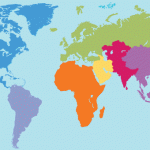 I heard John Claxton from the European Commission speaking last week on the participation on International Cooperation Countries (ICCs) in Horizon 2020 (These countries include Brazil, the USA, China and so on).
I heard John Claxton from the European Commission speaking last week on the participation on International Cooperation Countries (ICCs) in Horizon 2020 (These countries include Brazil, the USA, China and so on).
ICCs have been able to participate as EU members in the FP7 schemes most relevant to us at BU and indeed some calls for proposals have actually targeted these countries for participation. This targeted approach has reduced over the last 2 years of FP7, with instead just a general encouragement to engage with these countries which may be an indication for Horizon 2020. Figures show that 2.5% of the total budget goes to third countries, and one in 5 accepted proposals has a third country participant.
The 5 ICCs which participate most in FP7 in highest to lowest are Russia, the USA, India, South Africa and Brazil. And the programme which has a huge number of ICC participants is Marie Curie, with a whopping 12,000 researchers coming into the EU from ICCs.
The EU is currently revising the international cooperation policy between Member States and the rest of the European Union through committees such as the Strategic Forum for International Science and Technology Cooperation. These groups are trying to develop more coherence and synergies between ICCs and the EU Member States and have already launched pilot work with India, China, Latin America, Africa, the Caribbean and the USA and will be working on Brazil and Russia over the following year.
So what has sparked this change? Well most societal challenges are global in nature, especially those under focus in the proposed Horizon 2020. The EU needs to get access to ICCs working in similar areas and we need access to their markets. We also need to build a critical mass for tackling global challenges through resource pooling and risk sharing in order to lead to more possibilities for breakthroughs and innovations.
And what is the EC doing about it? The EC has recognised that the EU needs to engage more strategically and actively in international cooperation so has been developing more targeted approach. For Horizon 2020, the EC are aligning their societal challenges and enabling technologies with the rest of the world, looking at issues such as infrastructures, patents, publications, access to markets etc. More specifically there will be funding opportunities for ICCs within the proposed Horizon 2020. Under Societal Challenges and Industrial Leadership there will be the targeting of specific countries or regions based on common interiors and joint calls and co-funding of programmes with Third Countries. Under Excellent Science the will be specific fellowships designed to stimulate innovation, the development of global research infrastructures and of course the European Research Council and Marie Curie programmes will remain open to all countries globally. Finally under dedicated cross-cutting actions there will be support for bilateral, multilateral and bi-regional policy dialogue, network and twinning activities and other policy initiatives.
The final stages of ICC development under Horizon 2020 includes reinforcing partnerships between the EC and Member States, strengthening implementation, governance and evaluation, identifying areas for targeting and developing roadmaps with key partners.
So it looks as though ICCs will be incorporated even further into Horizon 2020 which is great for those of you with partners outside of the EU!
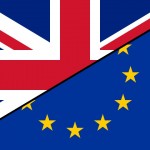 I heard a very interesting presentation by Scott Hudson from the UK Representation to the EU Brussels (UKREP) last week who discussed how decisions on funding are made in Brussels. UKREP exists to present the UK government views to the EU in order to try and influence legislation to make it more beneficial to the UK. They also get involved with UK representative groups in Brussels such as UKRO and in lobbying etc.
I heard a very interesting presentation by Scott Hudson from the UK Representation to the EU Brussels (UKREP) last week who discussed how decisions on funding are made in Brussels. UKREP exists to present the UK government views to the EU in order to try and influence legislation to make it more beneficial to the UK. They also get involved with UK representative groups in Brussels such as UKRO and in lobbying etc.
UKREP get involved with the 80 or so Council Working Groups. These groups have representatives fro all 27 Member States and meet twice a week to discuss legislation. One of these councils is responsible for Horizon 2020 and UKREP attend these discussions to present the UK view in order to to stop/ push certain legislation. UKREP work closely with the Department of Business, Innovation and Skills (BIS) to represent the UK view. A rather terrfiyingly complex diagran was shown demonstrating the process in creating legislation.
But back to Horizon 2020. The UK have agreed with most of the proposals for this in particular the 3 pillars and the greater initiatives to include SMEs as well as the focus on excellence. They also agree with simplification. But want to be clear on who is benefitting from this, and ensuring it’s us who is benefiting and not the European Commission.
UKREP also broadly support flat rates of reimbursement but on the back of David Willetts push, have called for a reintroduction of an option for the recovery of actual indirect costs occurred.
Finally UKREP are continuing to push for a clear role of social sciences and humanities within Horizon 2020. They call for social sciences and humanities throughout all major themes such as green cars etc and not for it to be just seen as something distinct.
Given that UKREP have such great links with BIS it’s important to ensure we have good communication with them too. A key contact within BU for liaising with BIS is Mark Painter so do get in touch with him if you want to learn more about how you can influence BIS.
 The EU has fuding available for a study on social innovation in the digital agenda. The proposal will focus on the innovation enabled by future internet, and particularly on social innovation enabled by the network effect of the internet, as well as by new models for co-production and sharing of content and the open development of apps. Funding is worth up to €500,000 over 18 months.
The EU has fuding available for a study on social innovation in the digital agenda. The proposal will focus on the innovation enabled by future internet, and particularly on social innovation enabled by the network effect of the internet, as well as by new models for co-production and sharing of content and the open development of apps. Funding is worth up to €500,000 over 18 months.
 The info day on Collective Awareness Platforms is jointly organised by Queen Mary, University of London, and the European Commission. The event will launch the work programme for ‘Collective Awareness Platforms’ within the next ICT call. Collective Awareness Platforms for Social Innovation and Sustainable Social Changes (CAPS) are ICT systems leveraging the emerging ‘network effect’ by combining open online social media, distributed knowledge creation and data from real environments (Internet of Things), in order to create new forms of social innovation.
The info day on Collective Awareness Platforms is jointly organised by Queen Mary, University of London, and the European Commission. The event will launch the work programme for ‘Collective Awareness Platforms’ within the next ICT call. Collective Awareness Platforms for Social Innovation and Sustainable Social Changes (CAPS) are ICT systems leveraging the emerging ‘network effect’ by combining open online social media, distributed knowledge creation and data from real environments (Internet of Things), in order to create new forms of social innovation.
The day will be made up of a brief presentation of the work programme for the next ICT Call 10 by the European Commission, followed by question and answers and an ideas workshop in the afternoon.
 The EC will be holding a Marie Curie Actions Conference in Dublin on 10-11 July 2012.
The EC will be holding a Marie Curie Actions Conference in Dublin on 10-11 July 2012.The conference will provide participants with some training in areas that can be critical for any researcher such as ‘intellectual property rights’, ‘getting your name in the newspaper’, ‘exploiting social media’, ‘how to draft applications to EU calls’ and ‘speaking confidently to a non-scientific audience’. The conference will also provide participants with some insights on the future Marie Skłodowska-Curie Actions under Horizon 2020. Registration to the Marie Curie Actions Conference also includes entry to the main Euroscience Open Forum (ESOF) held in Dublin on 11-15 July, where participants can meet Nobel Prize winners and specialists in their research field – what a great opportunity!
 NET4SOCIETY, the network of National Contact Points for research in the field of Socio-Economic Sciences and Humanities (SSH) in FP7, is hosting an Active Ageing Conference in Dublin on 9th-11th July 2012.
NET4SOCIETY, the network of National Contact Points for research in the field of Socio-Economic Sciences and Humanities (SSH) in FP7, is hosting an Active Ageing Conference in Dublin on 9th-11th July 2012.The event will be themed around the 2012 European Year for Active Ageing and Solidarity between Generations and will focus on the human and social aspects and implications of active ageing. Key note speakers include Anne-Sophie Parent, Secretary General of the AGE Platform Europe network and Lenia Samuel from the European Commission’s Directorate General for Employment, Social Affairs and Inclusion.
Thematic sessions will be based on four key topics:
This is a great opportunity to meet potential new partners!
 This is a reminder that an information event for those planning to participate in the final round of calls under the Information Communication Technologies (ICT) theme in FP7 is being held in London on 18 July. The event, called ‘ICT – The Future of EU Collaborative R&D’ is being jointly hosted by the ICT Knowledge Transfer Network (KTN), the Department for Business, Innovation and Skills (BIS) and the Technology Strategy Board (TSB). With speakers from the European Commission, BIS and the TSB, the sessions will provide an overview of opportunities both in the final round of ICT calls under FP7 and give insight into ICT research under Horizon 2020. The event runs from 10am until 4pm and will be held at the Royal Academy of Engineering. It is free to attend but delegates must register. Info days are a fantastic way to not only hear more detail about a call and its requirements but are a fantastic way to network!
This is a reminder that an information event for those planning to participate in the final round of calls under the Information Communication Technologies (ICT) theme in FP7 is being held in London on 18 July. The event, called ‘ICT – The Future of EU Collaborative R&D’ is being jointly hosted by the ICT Knowledge Transfer Network (KTN), the Department for Business, Innovation and Skills (BIS) and the Technology Strategy Board (TSB). With speakers from the European Commission, BIS and the TSB, the sessions will provide an overview of opportunities both in the final round of ICT calls under FP7 and give insight into ICT research under Horizon 2020. The event runs from 10am until 4pm and will be held at the Royal Academy of Engineering. It is free to attend but delegates must register. Info days are a fantastic way to not only hear more detail about a call and its requirements but are a fantastic way to network! Cedefop, the European Centre for the Development of Vocational Training, has published a call for tenders for partnerships for lifelong learning in Europe. The purpose of the contract is to understand and analyse how (initial) vocational education and training (VET) providers co-operate and develop partnerships within and beyond their own sector so as to support smooth individual learning progression and permeability at system level. Reviewing the development of new governance patterns, the research also addresses how education and training actors are organising themselves and co-operating with different categories of stakeholders to develop lifelong learning.
Cedefop, the European Centre for the Development of Vocational Training, has published a call for tenders for partnerships for lifelong learning in Europe. The purpose of the contract is to understand and analyse how (initial) vocational education and training (VET) providers co-operate and develop partnerships within and beyond their own sector so as to support smooth individual learning progression and permeability at system level. Reviewing the development of new governance patterns, the research also addresses how education and training actors are organising themselves and co-operating with different categories of stakeholders to develop lifelong learning.
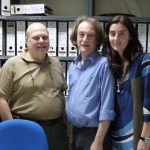 Earlier this year I won funds as part of the BU EU Networking Fund, to support me in meeting up with colleagues in Greece to discuss a future research collaboration. I travelled to Crete to meet Assistant Professor A. Stavropoulou, from the Technological Educational Institute (TEI), who will be a member of the proposed research team. Whilst there I also met with several other members of staff who were very keen to support the research initiative and to explore the additional possibility of Erasmus-funded teacher exchanges.
Earlier this year I won funds as part of the BU EU Networking Fund, to support me in meeting up with colleagues in Greece to discuss a future research collaboration. I travelled to Crete to meet Assistant Professor A. Stavropoulou, from the Technological Educational Institute (TEI), who will be a member of the proposed research team. Whilst there I also met with several other members of staff who were very keen to support the research initiative and to explore the additional possibility of Erasmus-funded teacher exchanges.
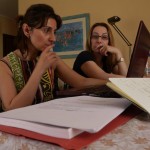 I then visited Athens in order to meet with Dr. Theodora Strobouki, a potential co-ordinator of the research project . Whilst there, I undertook a busy programme of meetings including a wide variety of key personnel and undergraduate student cohorts in classroom and clinical laboratory settings. Finally, I met key individuals at the Antheus Syggros Hospital in Athens, a potential clinical venue for the research/data collection, as well as many other key individuals.
I then visited Athens in order to meet with Dr. Theodora Strobouki, a potential co-ordinator of the research project . Whilst there, I undertook a busy programme of meetings including a wide variety of key personnel and undergraduate student cohorts in classroom and clinical laboratory settings. Finally, I met key individuals at the Antheus Syggros Hospital in Athens, a potential clinical venue for the research/data collection, as well as many other key individuals.
 This networking activity has enabled the formation and strengthening of an initial core team for the Greek branch of the research, by enabling face-to-face meetings with clinical and academic gate-keepers, and by successfully canvassing support from the senior academics in the respective institutions. It also allowed me to identify and expand my skills and insight. We are currently looking in to ARISTEIA funding and to publish a collaborative paper.
This networking activity has enabled the formation and strengthening of an initial core team for the Greek branch of the research, by enabling face-to-face meetings with clinical and academic gate-keepers, and by successfully canvassing support from the senior academics in the respective institutions. It also allowed me to identify and expand my skills and insight. We are currently looking in to ARISTEIA funding and to publish a collaborative paper.